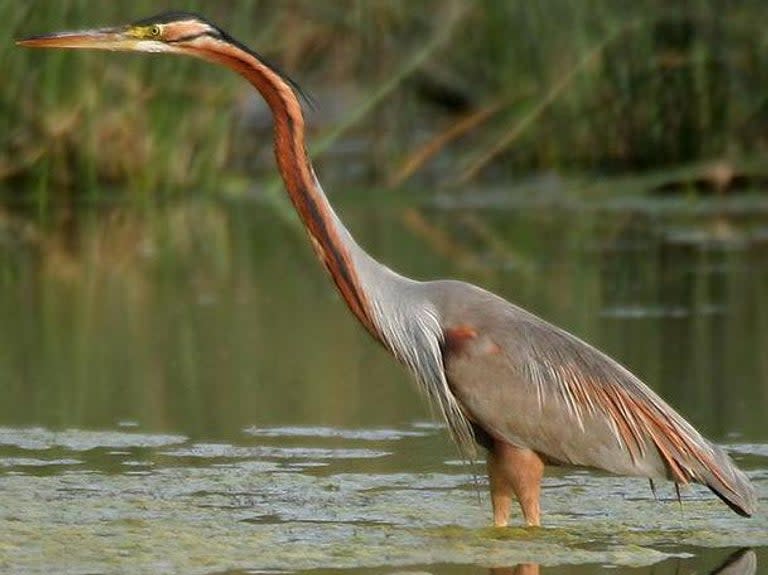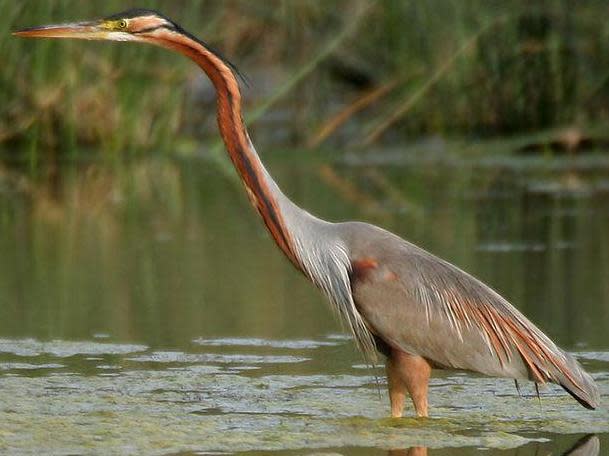Social media helps prove UK animals are migrating north as climate warms
Dozens of animals, from birds to bats, are moving north across the UK as a result of climate change, scientists have discovered thanks to the help of social media.
In the past decade, at least 55 land-based and marine species have moved to parts of Britain outside their natural range or have arrived in the country from warmer climates, a study from the Zoological Society of London has found.
They include purple herons, which bred successfully for the first time in Kent in 2010, and European bee-eaters, which bred in the UK in 2014 and 2017. Jersey tiger moths have spread from the Channel Islands and south coast to London, while red mullet and greater horseshoe bats have also been displaced by climate change. One species, the black bee fly, entered the UK for the first time, with the first being recorded in Cambridgeshire in 2016 when it was found on a bug hotel in a garden.
The study analysed UK government environment reports and 111 scientific papers to find species that were on the move as a result of rising temperatures. Researchers also performed Twitter and Google searches for terms including “unusual species” and “first sighting” to find areas across Britain where social media users were reporting new animals.
Of the 55 species discovered, 10 were identified thanks to social media, the research published in the Journal of Applied Ecology shows. The study, which focused only on animals that had established sustainable new populations through natural movement, said 16 of the 55 species (29 per cent) are known to have negative impacts on nature or people. They include crop pests such as the box tree moth and oak borer beetle.
A further 11 species (20 per cent) were reported to have potentially positive impacts, such as increasing tourism or boosting fish stocks. Dr Nathalie Pettorelli, lead author and senior research fellow at ZSL’s Institute of Zoology, said: “We are currently massively unprepared for the climate-driven movement of species that is happening right now in the UK.
“As it stands, society is not ready for the redistribution of species, as current policies and agreements are not designed for these novel species and ecological communities – particularly if those species have no perceived value to society. Our results suggest that many species are on the move in the UK, and that we can expect a lot of changes in the type of nature we will have around us in the coming years.
“But the lack of an integrated national platform dedicated to tracking and communicating about species displaced by climate change is currently a hindrance to mitigating those potential ecological, economic and societal associated impacts.”
Additional reporting by PA

 Yahoo News
Yahoo News 

